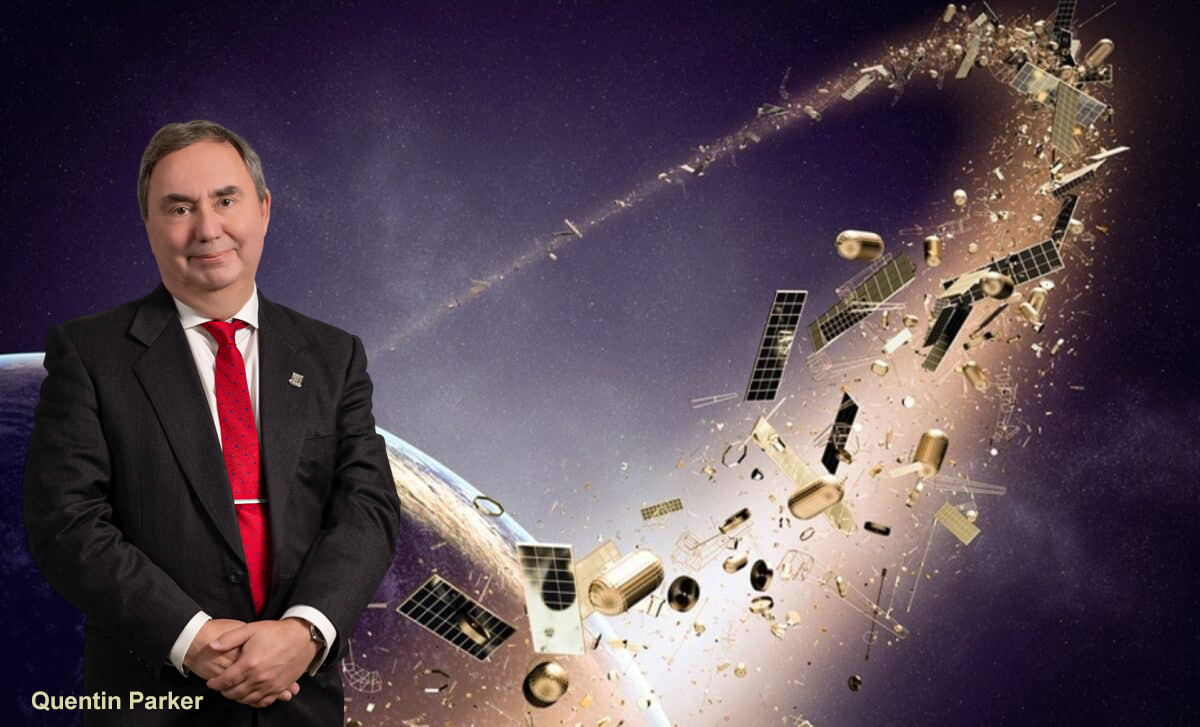
- This event has passed.
A Healthy Space Environment for all – avoiding the Kessler Syndrome – with Quentin Parker

Abstract
The question of human health in space in not limited to the human condition inside a Space Station but is increasingly dependent on the safety and health of the external environment. This is in terms of the orbital security of satellites, space telescopes and space stations from the direct threat posed by the so-called Kessler Syndrome. It sounds like a medical condition or viral infection and indeed in some ways it is. The Kessler syndrome would be the ultimate result of the unchecked infection of LEO by vast swarms of large and small pieces of viral space debris which, if unremediated, will lead to the catastrophic cascading collapse of the entire ecosystem -ie the destruction of LEO as a viable environment for any satellite or spacecraft. In this talk I cover the issues and explore potential solutions the most important of which is accepting responsibility and committing to international co-operation and, if necessary, unilateral action.
A short bio
Professor Quentin A Parker, PhD, BSc (hons), FRAS, FASA. Quentin Parker obtained a PhD from the University of St. Andrews in 1986 and joined the faculty at the University of Hong Kong in March 2015 to take up the Headship of the Department of Physics. In 2017 he became Associate Dean (Global) of the Faculty of Science and Director of the Laboratory for Space Research (see https://www.lsr.hku.hk/). Prior to that Quentin worked at the Royal Observatory Edinburgh (1986-1992), Anglo-Australian observatory (1992-1999), Institute for Astronomy, University of Edinburgh (1999-2002) and then in joint position with the AAO and Macquarie University (2002-2015) where he developed and was director of the MQ research centre in Astronomy, Astrophysics and Astrophotonics growing membership from 2 staff when he arrived to 50 when he left. Research activities are mainly but not exclusively associated with Wide Field Astronomy (including being PI for the UKST H-alpha survey), large-scale redshift surveys, Galactic Archaeology, supernova remnants and especially Planetary Nebulae where he has discovered more PNe than anyone in history of the field. He leads the Hong-Kong/AAO/Strasbourg H-alpha PNe project. He has also extensive experience as an instrumentalist with multi-object fibre-optic spectrographs and narrow-band filters. In the last 8 years he has taken a strong interest in the Chinese Space program and the emerging NewSpace economy. He contributes regularly on this topic on various fora, including TV, radio and newspaper articles where he is a regular opinion contributor to the South China Morning Post and China Daily. Academically he has published more than 598 papers and articles of which ~300 are refereed and has ~23,500 citations with a h-index of 71. He has supervised and co-supervised about 30 PhD, MSc/MPhil and honours students to successful completion and is always keen to attract students. Quentin also has a long-term interest in Chinese Bronze artifacts and cultural heritage, interdisciplinary studies and science pedagogy.
and click ‘going’ on the Facebook Event: https://www.facebook.com/events/1237907214423991/